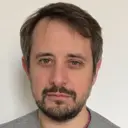Pandemic 'incredibly harrowing' for NHS staff - Whittypublished at 12:39 BST 26 September 2024
 Jim Reed
Jim Reed
Reporting from the inquiry
Prof Chris Whitty tells the inquiry that without a lockdown in March 2020 the pressure on NHS hospitals would have been “substantially worse”.
He describes the pandemic as the largest medical emergency since World War Two and says it was “unsurprising” some hospitals found it difficult to “escalate” treatment as they would do in normal times.
The pandemic was “incredibly harrowing” for NHS staff, he says, "particularly in the first wave before vaccines became available".